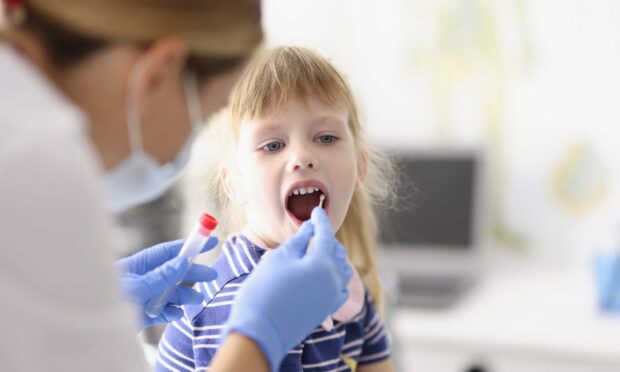Health leaders say the number of Strep A cases being reported in Scotland have soared “well beyond” the peaks of previous years.
Just under 1,000 cases were recorded in the week to December 11, according to new data.
This is more than double other peaks experienced since 2016, which typically levelled off between 300 and 480 per week.
Strep A infections are generally mild, involving the likes of a sore throat, fever or headache.
But there have also been 12 cases of potentially life-threatening invasive Group A Streptococcus (IGAS), where the Streptococcus bacteria has moved into the bloodstream.
Strep A in Scotland: What do the figures show?
Experts say there’s a three to four year cycle where winter and spring Strep A cases in Scotland peak higher than usual.
This year, the increase has appeared earlier than expected.
In the week to December 11, there were 967 lab-confirmed reports.
However, Health Protection Scotland says this could partially be down to more awareness about the illness than in the past.
Serious infection levels ‘similar to past years’
It also says the number of IGAS infections “remain stable” and, at this stage, are similar to previous years.
However, past peaks have increased to between 12 and 18 per week.
No new reports of these for children under-10 were made in the last week, but there have been six new cases across all age groups.
So far this winter 16 UK children have died from Strep A-related infections.
Of them, 14 were in England, with others in Wales and Belfast.
What’s the advice?
Last week NHS Grampian issued guidance to concerned parents about how to handle the situation.
And Dr Nick Phin from Public Health Scotland has reassured those worried that IGAS infections are “very rare”.
He said: “The bacteria causing GAS infections is usually found in the throat and on the skin.
“We would, therefore, encourage adults to ensure children wash their hands frequently with soap and water, and to cover their mouth and nose with a tissue when they cough or sneeze and then put the used tissue in the bin.
“These simple actions can help to reduce the spread of common infections like Group A strep.”


